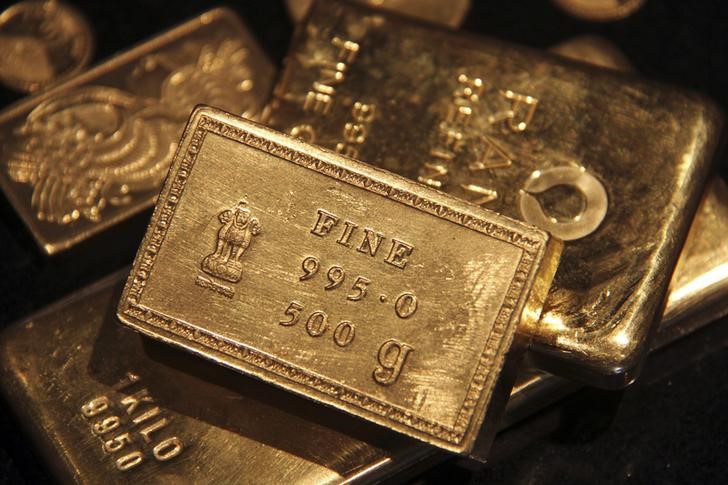Investing.com - Gold prices neared a one month high Friday before consolidating to end the week up just over 1% after a mixed U.S. jobs report for August, where payrolls came in higher than forecast but unemployment also rose, touching 18-month highs.
The US economy added 187,000 nonfarm payrolls last month against a forecast 170,000 while the jobless rate perked to 3.8% from a previous 3.5%, the Labor Department said. The mixed reading conveyed the messaging that the Federal Reserve might not immediately resort to more rate hikes to bring inflation to its long-standing target of 2% per annum from the about 3% it hovered at now.
In Friday’s trade, gold futures’ most-active December contract on New York’s Comex hit $1,981.70 an ounce, its highest since Aug. 7 before settling at $1,967.10, up $1.20, or 0.06%. For the week, it rose 1.4% despite falling 2% for all of August.
The spot price of gold, which is more closely followed than futures by some traders, was at $1,940.61 an ounce by 15:45 ET (19:45 GMT), up 49 cents, or 0.03%. The spot price, which is reflective of real-time trades in bullion, rose to less than a penny of $1,953 earlier in the session, its highest since Aug. 2.
Gold rallied then settled off its highs as the non-farm payrolls for August, at the least, “signal interest rates may not rise any further”, something all risk assets seemed to take positively, said Craig Erlam, analyst at online trading platform OANDA.
The Fed has three more opportunities to raise rates this year, with its policy-making Federal Open Market Committee having rate decisions scheduled on September 20, November 1 and December 13.
With jobs still growing more than expected each month, the central bank could opt for one or two more hikes this year.
Yet, any growth in unemployment as well, as evidenced in August, will complicate the Fed’s decision-making process on this. Aside from keeping inflation at or below 2%, the central bank is mandated by the US Congress to provide maximum employment to Americans — a target identified by a jobless rate of 4% or below. Last month’s unemployment rate of 3.8% was the highest since February 2021.
“The November [rate] hike odds are down to 36% and once that hits zero, there are no hikes to 'price out' any longer and it will become a waiting game for [interest rate] cuts,” economist Adam Button said, commenting on ForexLive platform.
The Fed has vowed not to cut rates so long as inflation stays above 2%, setting the central bank up for what could possibly be a protracted battle in achieving its target.
The changes suggest the Fed would have to ponder more deeply on how to proceed with interest rates as it targets for inflation to return to the annual 2% or less level seen before the COVID-19 outbreak in March 2020.
Inflation rose as much as 9.1% year-on-year in June 2022, hitting four-decade highs as the government spent trillions of dollars fighting the pandemic. As of last month, inflation had moderated to an annual growth of 3% after the Fed raised iinterest rates to 5.5% from a base rate of just 0.25% in March 2022. While pandemic-related spending is now over, robust jobs growth and wage growth are keeping the Fed from achieving its 2% target for inflation, the central bank said.
(Ambar Warrick contributed to this item)
